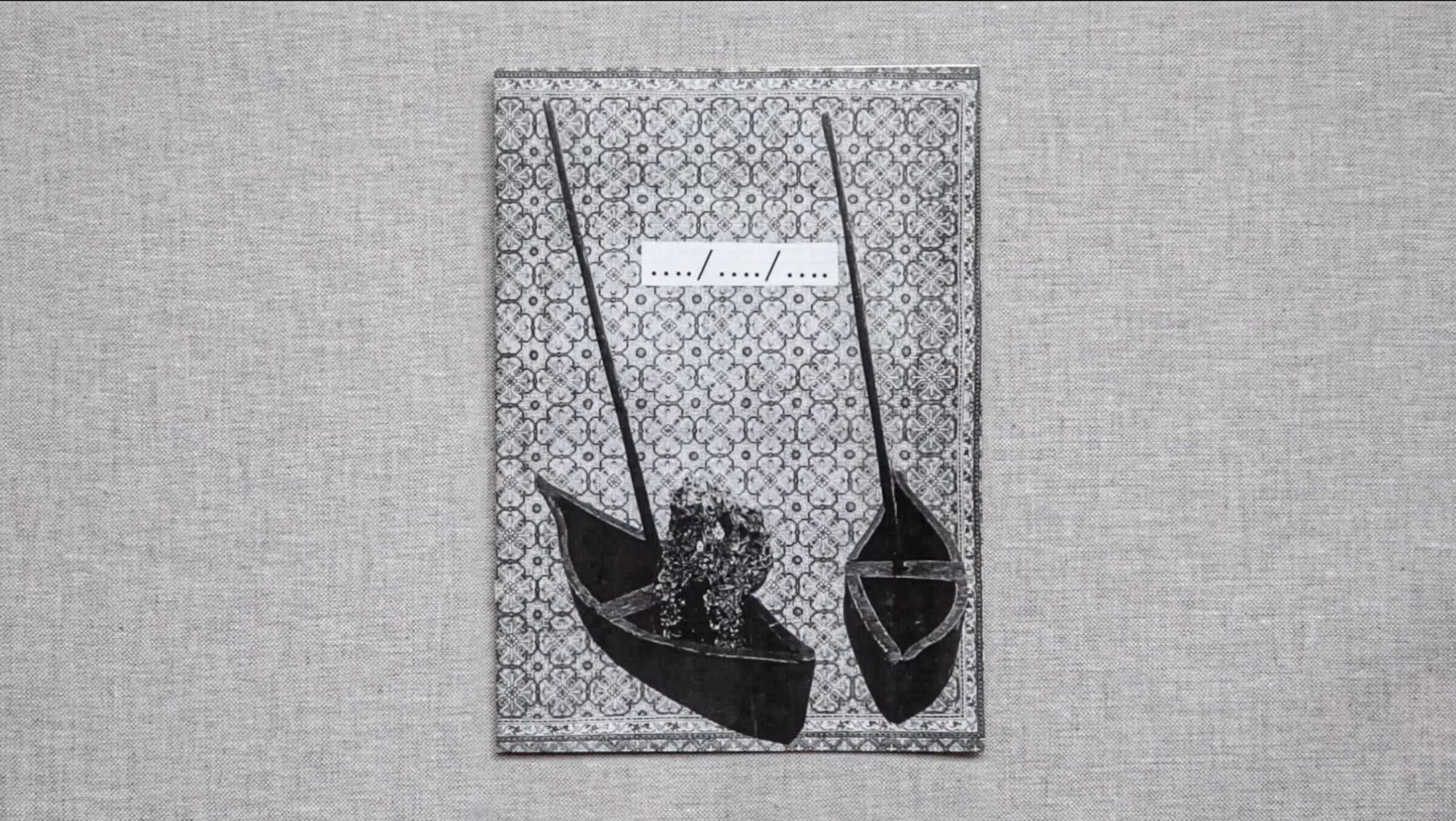A few months before Derk Thijs entered the Prix de Rome, he took a crucial decision: he gave up painting on canvas. A discipline he had pursued for years and become proficient at, not just at art school in Kampen but at the postgraduate program at de Ateliers, Amsterdam. But at this stage, Thijs felt it had little more to offer. And Derk Thijs (1977, Amsterdam) started drawing – predominantly murals. “And suddenly all the classic problems of painting disappeared”, he recounts. “Decisions about foreground, background, layering, the limitations of oil paint – all evaporated. It was a real breakthrough for me. I felt totally liberated and work started to flow effortlessly as though it would never stop.”
And the work has been flowing ever since -at least for now. During the second round of the Prix, the Jury was impressed by Thijs' metres-high paintings on brownish packing paper. Simple depictions, a little naïve even, of black figures who invite the spectator to complete the story. The figures are washed up on a beach, gazing at an oil tanker on the horizon or have gathered beneath a palm tree. Their power lies in their simplicity: Thijs paints them as ghostly backlit forms in the service of the world around them. "Individuals don't particularly interest me", says Thijs. "Nor in narratives or in art. Brueghel is one of my favourite artists at the moment -his Hunters in the Snow is perhaps the most beautiful work of art ever created. This is because I feel that Brueghel removes himself entirely from his work. He simply shows how everything is united in the sight of God." Thijs indicates the back wall of his studio -perhaps unnecessarily which is hung with various drawings of hunting scenes.
Thijs' prime concern is with the possibility of unity in today's multiplicity. "Can countless very different realities co-exist in an artwork - that's what I'm interested in", he explains. "Not just in terms of imagery, but morals too. For instance, can we justify consciously banishing things like the situation in the Third World from our field of vision, or is it something we can't help doing?" There was good reason for Thijs to explore religious themes during his period at de Ateliers. "The response wasn't very enthusiastic. Many of the tutors there belong to a generation that abandoned religion but with some difficulty. They dismissed that work and, while not being religious myself, I don't think you can deny the importance of the religious tradition in western art." At the moment, Thijs' Is exploring a different theme. The book A Thousand Plateaus by Deleuze and Guattari, that asserts that life is about the peaceful coexistence of diverse opinions and visions, lies on the table in his studio at the Rijksakademie. This new interest is reflected in the artist's most recent work: over the past months he has been working on drawings and three-dimensional pieces, socles and 'murals' -still on huge sheets of packing paper -portraying black figures in an endless landscape. But now they can talk -words pop up comic - book style in speech bubbles, taken from the Greek philosopher Heraclitus and the singer Bonny 'Prince' Billy, the pseudonym of the famous cult singer Will Oldham. "I listen to him a lot at the moment", says Thijs. "There's a kind of space in his work. He leaves things open, doesn't shut them off. This is something that I'm exploring more at the moment."
Thijs is still going with 'the flow' that took him over when he stopped producing paintings. And the drive to make work, and the questions, still keep coming. But has he come up with any answers yet? "If there's an answer, then for me it's in the painting itself", says Thijs. "For me, painting or drawing is the only way that everything can exist side by side." At the same time, he realises that this 'flow' will eventually come to an end. "Yes, the black hole is in sight", he admits. "Perhaps it will come at the end of this Prix de Rome - whenever it comes, I’ll be ready. I've already caught myself wanting to work on a painting. And if that's the case ... then that end is really another beginning. - Hans den Hartog Jager
